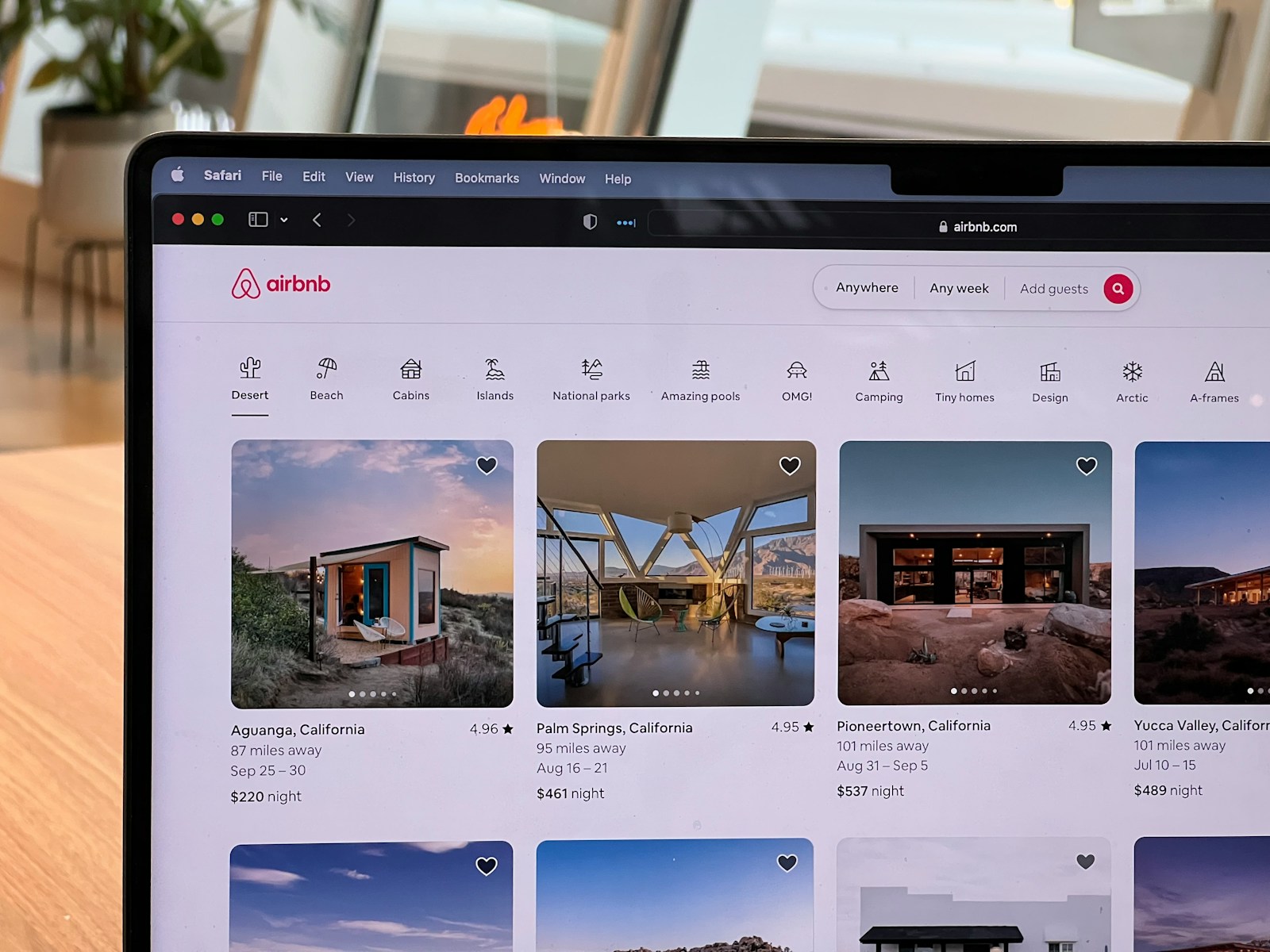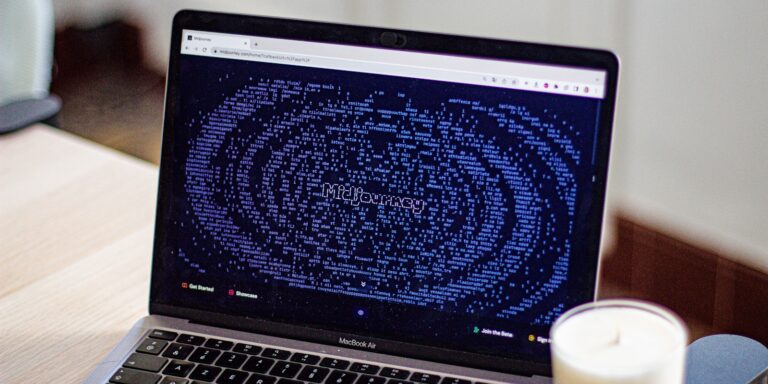
Planning a vacation should be exciting, but unfortunately, scammers are constantly finding new ways to target travelers using popular platforms like Airbnb. From fake listings to bait-and-switch tactics, these scams can quickly turn your dream getaway into a nightmare. Knowing how to spot common Airbnb scams is your best defense against becoming a victim and potentially losing money or arriving at a non-existent property.
Protecting yourself starts with understanding the warning signs. If a host pressures you to pay outside of Airbnb’s platform or offers a significant discount for doing so, this is almost always a scam. Similarly, be cautious of listings with few reviews or properties that seem too good to be true. Scammers often create fake listings with stolen photos and unrealistically low prices to lure unsuspecting travelers.
Taking a few simple precautions can make all the difference in securing a legitimate vacation rental. Always communicate through the official Airbnb messaging system, carefully read reviews from previous guests, and never send money through wire transfers or payment apps. Remember that Airbnb will never ask you to move to alternative accommodations without proper documentation through their platform.

Common Airbnb Scams
Booking an Airbnb can be a fantastic way to find unique accommodations, but with the rise of scams in 2025, it’s crucial to stay vigilant. Here’s a comprehensive guide to the most common Airbnb scams and practical dos and don’ts to keep your booking safe.
Common Airbnb Scams in 2025
- Multi-Listing Traps
Scammers create multiple listings for the same property to confuse renters and lure them into booking fake listings. - Fake Reviews
Listings with overly generic praise or clusters of reviews posted in a short timeframe may be fake to boost credibility artificially. - Off-Platform Payment Requests
Scammers often ask guests to pay outside Airbnb’s secure payment system, such as via wire transfer or direct bank deposit, which bypasses Airbnb protections. - Fake or Stolen Photos
Scammers use photos copied from legitimate listings or other websites to make their fake listings look real. - Long-Term Stay Scams Targeting Hosts
Some scams involve fake inquiries for long stays with fraudulent payment methods, targeting hosts’ listings.
Dos and Don’ts to Avoid Airbnb Scams
Dos
- Do Book Only Through Airbnb’s Official Platform
Always complete your booking and payment within Airbnb to ensure protection. - Do Verify Host Credibility
Check the host’s profile for verified ID, detailed bio, and consistent reviews. - Do Use Reverse Image Search
Verify listing photos by doing a reverse image search to detect duplicates or stolen images. - Do Read Reviews Carefully
Look for detailed, specific reviews rather than generic praise. - Do Communicate Through Airbnb Messaging
Keep all communication on Airbnb’s platform to have a record and avoid off-platform scams. - Do Report Suspicious Listings or Behavior
Alert Airbnb immediately if something feels off.
Don’ts
- Don’t Pay Outside Airbnb
Avoid wire transfers, cash payments, or other payment methods outside the platform. - Don’t Ignore Red Flags in Listings
Listings with unusually low prices, vague descriptions, or pressure to book quickly should raise suspicion. - Don’t Trust Hosts Without Verified Profiles
Lack of verification or incomplete profiles may signal a scam. - Don’t Share Personal Information Unnecessarily
Protect your personal data and avoid sharing sensitive information with hosts.
Final Tips
- Use tools and apps that help identify duplicate listings or fake reviews.
- Stay updated on new scam patterns as scammers evolve their tactics.
- Trust your instincts; if something feels wrong, it probably is.
By following these dos and don’ts, you can enjoy safe and hassle-free Airbnb experiences in 2025.
Key Takeaways
- Always book and pay directly through the Airbnb platform to ensure protection against common vacation rental scams.
- Research properties thoroughly by reading reviews, verifying host profiles, and being skeptical of deals that seem too good to be true.
- Trust your instincts and report suspicious activity immediately to Airbnb’s customer support team before sending any payment.
Understanding Airbnb Scams
Airbnb scams have become increasingly sophisticated as the platform’s popularity grows. Travelers need to recognize warning signs and understand how scammers operate to avoid losing money and ruining vacation plans.
Common Types of Airbnb Scams
Scammers use various tactics to target Airbnb users. One frequent scheme involves fake listings and phishing scams where criminals create attractive but non-existent properties to collect payments or personal information.
Bait-and-switch tactics are also common. In this scenario, guests arrive to find a property completely different from what was advertised – typically of much lower quality.
The “host cancellation” scam happens when hosts cancel at the last minute, forcing guests to book more expensive accommodations or accept the host’s off-platform “alternative” property.
Account hacking is another serious threat. Scammers gain access to legitimate accounts and use them to create bookings or change payment information.
Price manipulation scams occur when hosts add unexpected fees after booking or claim “damages” requiring additional payment.
Recognizing Fake Adverts
Fake Airbnb advertisements typically display several red flags. Prices that seem too good to be true usually are – extraordinarily low rates for premium locations should raise immediate suspicion.
Scammers often use stock photos or AI-generated images to create appealing but fictitious listings. Look for inconsistencies in images, such as distorted features or oddly placed furniture.
Communication is another indicator. Legitimate hosts communicate through Airbnb’s platform, while scammers often push for off-platform conversations via email or messaging apps.
Review the property’s reviews carefully. Properties with few or suspiciously similar reviews may be fraudulent. Experts recommend choosing properties with several hundred reviews, as it’s difficult for scammers to fake large numbers of reviews.
Urgency tactics like “book now before it’s gone” or “special one-day discount” often indicate fraud attempts designed to rush decision-making.
The Mechanics of Credit Card Fraud
Credit card fraud on Airbnb typically begins when scammers request payment outside the platform’s secure system. They might claim this avoids “service fees” or offers a special discount.
Once they have your payment details, scammers can:
- Make unauthorized charges
- Sell your information on dark web marketplaces
- Create clone cards for physical purchases
- Set up recurring payments
Payment requests through wire transfers, gift cards, or cryptocurrency are major warning signs. These payment methods offer little to no consumer protection and cannot be traced or reversed once completed.
Some scammers create convincing but fake Airbnb payment pages that capture your credit card information. Always verify you’re on the official Airbnb site before entering payment details.
Always use Airbnb’s secure payment system, which provides protection against fraud and helps resolve disputes if problems arise.
Catfishing in Property Listings
Property catfishing involves misrepresenting accommodations using deceptive photography and descriptions. Scammers use various techniques to make properties appear more appealing than reality.
Wide-angle lenses and strategic angles can make tiny spaces appear spacious. Photos taken years ago might show a property before significant deterioration occurred.
AI-generated images are increasingly problematic in property listings. These computer-created visuals can show perfect, spotless interiors that don’t actually exist.
Look for verification badges and check that you’re renting actual properties, not just digitally enhanced dreams. Research the neighborhood through street view tools and independent sources.
Compare multiple photos of the same space to spot inconsistencies. Different flooring, wall colors, or furniture arrangements between images often indicate deception.
Reading detailed reviews helps identify discrepancies between advertised amenities and actual offerings. Past guests frequently mention issues with cleanliness, noise, location accuracy, and missing amenities.
Protective Measures for Travelers
Staying safe when booking accommodations requires vigilance and attention to detail. Taking proactive steps before and during your Airbnb stay can significantly reduce your risk of falling victim to scams.
Verifying Property and Host Authenticity
Always thoroughly examine property listings before booking. Reading both positive and negative reviews provides insights into previous guests’ experiences and can reveal potential issues. Pay special attention to recent reviews as they reflect current conditions.
Perform reverse image searches on property photos. This simple step helps determine if the images are stolen from other websites or legitimate rental listings. Stolen images often indicate fraudulent listings.
Check host verification status and profile completeness. Legitimate hosts typically have verified identities, clear profile photos, and detailed biographies. The length of time a host has been active on the platform can also indicate reliability.
Research the property’s location on Google Maps or Street View. This confirms the property exists at the listed address and matches the photos in the listing.
Secure Payment Processes
Never pay outside Airbnb’s platform. Scammers often request payments through wire transfers, gift cards, or other non-refundable methods to bypass Airbnb’s secure payment system.
Enable multifactor authentication for your Airbnb account. This adds an extra layer of security and prevents unauthorized access even if your password is compromised.
Use a strong password that is unique to your Airbnb account. Avoid reusing passwords from other websites or services.
Monitor your booking confirmations and receipts carefully. Ensure all charges match the agreed-upon amount and report any discrepancies immediately.
Be wary of price changes after initial agreements. Legitimate hosts won’t suddenly change prices or request additional fees outside the platform.
Airbnb’s Fraud Protection: AirCover
Familiarize yourself with AirCover protection before booking. This comprehensive protection plan offers guests several important safeguards:
- Booking Protection: If a host cancels within 30 days of check-in, Airbnb helps find similar or better accommodations or provides a refund.
- Check-In Guarantee: If you can’t check into your listing, Airbnb assists with finding alternative accommodations.
- Listing Accuracy Guarantee: Protection if the listing differs significantly from what was advertised.
Document any issues immediately through the Airbnb app. Take photos and videos of problems to support potential claims.
Contact Airbnb customer service within 24 hours of discovering any problems to ensure coverage under AirCover.
Safe Communication Practices
Keep all communications within the Airbnb platform. This creates a record that Airbnb can access if disputes arise.
Be cautious of unusual requests from hosts, particularly those asking for personal information. Legitimate hosts won’t request unnecessary personal details.
Avoid clicking on unexpected links in emails or messages claiming to be from Airbnb. Instead, access your account directly through the official website or app.
Share your itinerary and accommodation details with trusted friends or family members before your trip. This creates an additional safety net should problems arise.
If something feels suspicious, trust your instincts. Verify any unusual communication directly with Airbnb customer service before proceeding.
Behaviors to Avoid When Booking
When booking an Airbnb, being aware of certain red flags can save you from potential scams. Protecting your money and personal information requires vigilance about payment methods, pricing that seems too good to be true, and unusual financial demands.
Risks of Direct Bank Transfers
Never agree to pay for your Airbnb stay through direct bank transfers. Scammers often try to lure guests away from the platform’s secure payment system by offering discounts for direct payments.
These transactions provide no protection if something goes wrong. Unlike credit card payments, bank transfers are nearly impossible to reverse once completed.
Be wary of hosts who claim the Airbnb payment system is “temporarily down” or that they can offer a “special discount” for paying outside the platform. These are common tactics used by scammers.
Always keep all communications and payments within the Airbnb platform to ensure you’re protected by their guarantees and dispute resolution processes.
The Lure of Unusually Cheap Deals
If a listing’s price seems drastically lower than similar properties in the area, this should immediately raise concerns. Extremely cheap deals are often bait to attract unsuspecting guests.
These suspiciously low-priced listings might:
- Not actually exist
- Look nothing like the photos
- Have hidden fees that make the final price much higher
- Be used to collect personal information through phishing
Do a reverse image search on the property photos to check if they’ve been stolen from other websites or real estate listings. This is a quick way to spot fake listings.
Compare prices with similar properties in the same location. A reasonable discount is possible, but a price that’s 50% below market should trigger caution.
High Deposit Demands
Be cautious of hosts requesting unusually high security deposits before booking. While security deposits are normal, excessive amounts may indicate a scam.
Standard deposits typically range from $100-500 depending on the property value. Requests significantly above this range without clear justification (like expensive equipment or furnishings) should be questioned.
Some scammers create fake damage claims after your stay to keep your deposit. To protect yourself, always:
- Take photos of the property condition upon arrival
- Document any existing damage immediately
- Report concerns to Airbnb within 24 hours of check-in
Avoid hosts who request deposit payments through methods outside Airbnb’s secure system. Legitimate transactions should always happen on the platform.
Do’s and Don’ts for a Secure Airbnb Experience
Staying safe while booking vacation rentals requires awareness of common scams and following specific security practices. Taking preventive measures can protect both your personal information and ensure you get the accommodation you expected.
Do: Use Trusted Platforms for Booking
Always book your accommodations directly through the official Airbnb website or app. This ensures your transaction is protected by the platform’s security measures and guarantees.
Before finalizing any booking, carefully review both positive and negative reviews from previous guests. Look for consistent patterns in feedback about the property and host.
Verification checklist:
- Confirm the host has a verified profile with consistent positive reviews
- Check that property images aren’t stolen by performing reverse image searches
- Verify the property address exists and matches the description
- Communicate only through the platform’s messaging system
It’s also advisable to research the neighborhood independently to ensure it meets expectations for safety and convenience. Many travelers find it helpful to contact the host with specific questions about the property before booking.
Do: Implement Strong Passwords and Multifactor Authentication
Protecting your Airbnb account should be a top priority for every traveler. Creating a unique, complex password is the first line of defense against unauthorized access.
A strong password typically includes:
- At least 12 characters
- Combination of uppercase and lowercase letters
- Numbers and special characters
- No personal information (birthdays, names, etc.)
Enable multifactor authentication on your Airbnb account immediately. This additional security layer requires a verification code sent to your phone or email when logging in from a new device.
Never reuse passwords across multiple platforms or websites. Consider using a reputable password manager to generate and store unique credentials for each service. Update your password regularly, especially after traveling or using public Wi-Fi networks.
Don’t: Fall for Phishing Scams
Phishing attempts targeting Airbnb users are increasingly sophisticated. Scammers create fake websites or emails that mimic Airbnb’s official communications to steal login credentials or payment information.
Warning signs of phishing attempts:
- Emails with urgent requests for account verification
- Messages containing grammatical errors or odd phrasing
- Requests to update payment information through email links
- Communications with slight variations in the sender’s address (like [email protected])
Always verify the legitimacy of communications by logging directly into your account through the official app or website. Never click suspicious links in emails claiming to be from Airbnb.
If uncertain about a message’s authenticity, contact Airbnb’s customer support directly through their official channels. Remember that legitimate Airbnb representatives will never ask for payment information via email or outside their secure platform.
Don’t: Respond to or Click on Unexpected Links
Any unexpected communication claiming to be from Airbnb should be treated with extreme caution. Fraudsters often send messages containing malicious links that can compromise personal information.
If a host requests communication or payment outside the Airbnb platform, this is a major red flag. All legitimate transactions should remain within Airbnb’s secure system.
Security experts recommend:
- Never clicking links in text messages about your booking
- Avoiding QR codes sent through unfamiliar channels
- Not downloading attachments from unverified sources
- Reporting suspicious messages to Airbnb immediately
Remember that legitimate Airbnb communications will appear in your account’s message center. When in doubt, manually type the Airbnb website address in your browser rather than following any provided links to access your account securely.
Special Considerations for Seasonal Scams
Travelers face unique challenges during peak vacation periods when scammers take advantage of high demand and desperation for accommodations. Seasonal scams often involve more sophisticated tactics and higher prices to exploit those planning holiday getaways.
Holiday Scams: Easter Break and Beyond
Easter break has become a prime target for Airbnb scammers who know families and students are actively seeking accommodations. During this period, fraudsters often create fake listings with attractive photos stolen from legitimate properties or other websites.
Common Easter Break Scams:
- “Too good to be true” pricing on premium properties
- Last-minute cancelations followed by offers to rebook at higher rates
- Pressure to book quickly due to “high demand” during the holiday
- Requests for payment outside the Airbnb platform
Be particularly cautious of hosts who claim their calendar is filling up fast for Easter. This creates artificial urgency that clouds judgment.
To protect yourself during holiday periods, always make payments through official platforms rather than wire transfers or payment apps. These transactions lack protection if the rental turns out to be fraudulent.
Check reviews carefully and be suspicious if a property has only recently been listed before a major holiday. Potential fraudsters often create temporary profiles that disappear after collecting payments.
Compare listings across multiple websites to verify legitimacy. If the same property appears on several sites with different owners or drastically different prices, this is a red flag.
Frequently Asked Questions
Travelers and hosts face several common scams on Airbnb. These practical tips can help both parties protect themselves and ensure a positive rental experience.
What steps can I take to ensure the legitimacy of an Airbnb listing before booking?
Always verify the property exists by checking the address on Google Maps and using Street View to confirm the location matches the listing photos. This simple step helps avoid bait-and-switch scams where hosts advertise one property but offer another.
Read reviews carefully, especially negative ones. Look for patterns in complaints that might signal recurring issues with the property or host.
Never agree to communicate or pay outside the Airbnb platform. The platform’s payment system offers protection that disappears with external payment methods like wire transfers, gift cards, or cash.
How can hosts protect themselves from potential scams by Airbnb guests?
Set clear house rules and communicate them before guests arrive. This establishes expectations and reduces misunderstandings that could lead to disputes.
Document the property condition before and after each stay with photos or videos. This evidence helps if guests cause damage and try to avoid responsibility.
Be wary of last-minute bookings with unusual requests. Scammers often use urgency to pressure hosts into making quick decisions without proper vetting.
What are the immediate actions to take if I suspect being scammed on Airbnb?
Contact Airbnb support immediately through the app or website. Document all communications and issues with screenshots or photos as evidence.
If at a property that doesn’t match the listing, take photos to show the discrepancy and contact Airbnb before unpacking or settling in.
For serious safety concerns or fraud, contact local authorities. Airbnb offers a 24/7 safety line for emergency situations during stays.
What indicators suggest an Airbnb Superhost status might not be genuine?
Few or no guest reviews despite the Superhost badge should raise suspicion. Legitimate Superhosts typically have numerous positive reviews.
Very new accounts with Superhost status are questionable since this status requires hosting for at least 10 stays over a year with high ratings.
Poor quality or generic listing photos combined with Superhost status often don’t align, as Superhosts typically maintain professional, accurate listings.
What precautions should guests take to avoid common scams on Airbnb?
Research the neighborhood before booking to ensure it matches the description in the listing. Some scammers misrepresent property locations to attract more guests.
Avoid listings with unrealistically low prices compared to similar accommodations in the area. If a deal seems too good to be true, it probably is.
Never send copies of identification or credit card information via email or messaging apps. Only provide required verification through Airbnb’s secure platform.
What are considered red flags when communicating with an Airbnb host or guest?
Pressure to make decisions quickly without adequate time to review information often indicates a scam. Legitimate transactions allow reasonable time for consideration.
Requests to pay outside the Airbnb platform are major warning signs. This includes requests for wire transfers, gift cards, or cash payments.
Vague responses to specific questions about the property or stay details may indicate the person is hiding something or doesn’t actually own/manage the property they claim.






